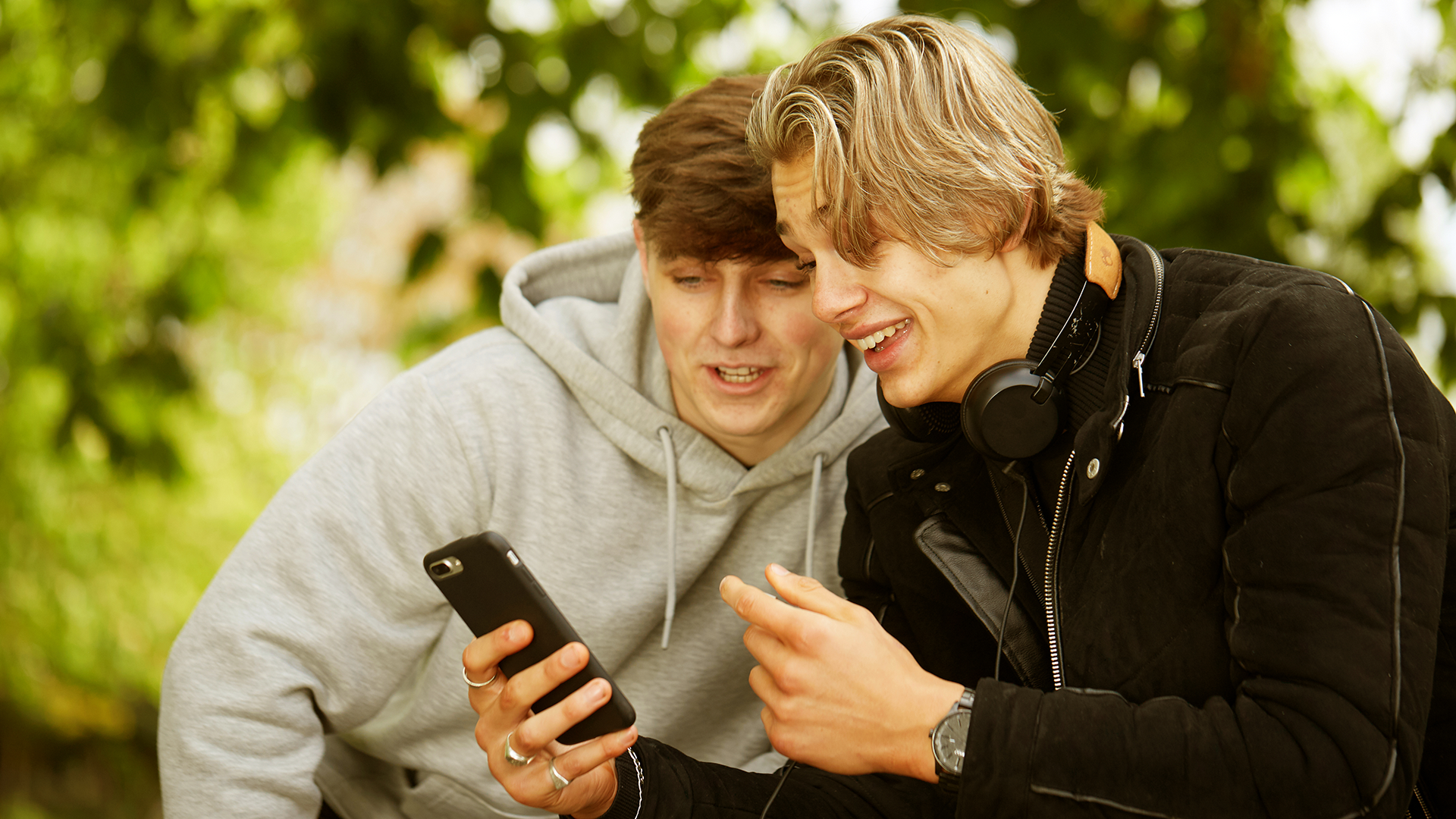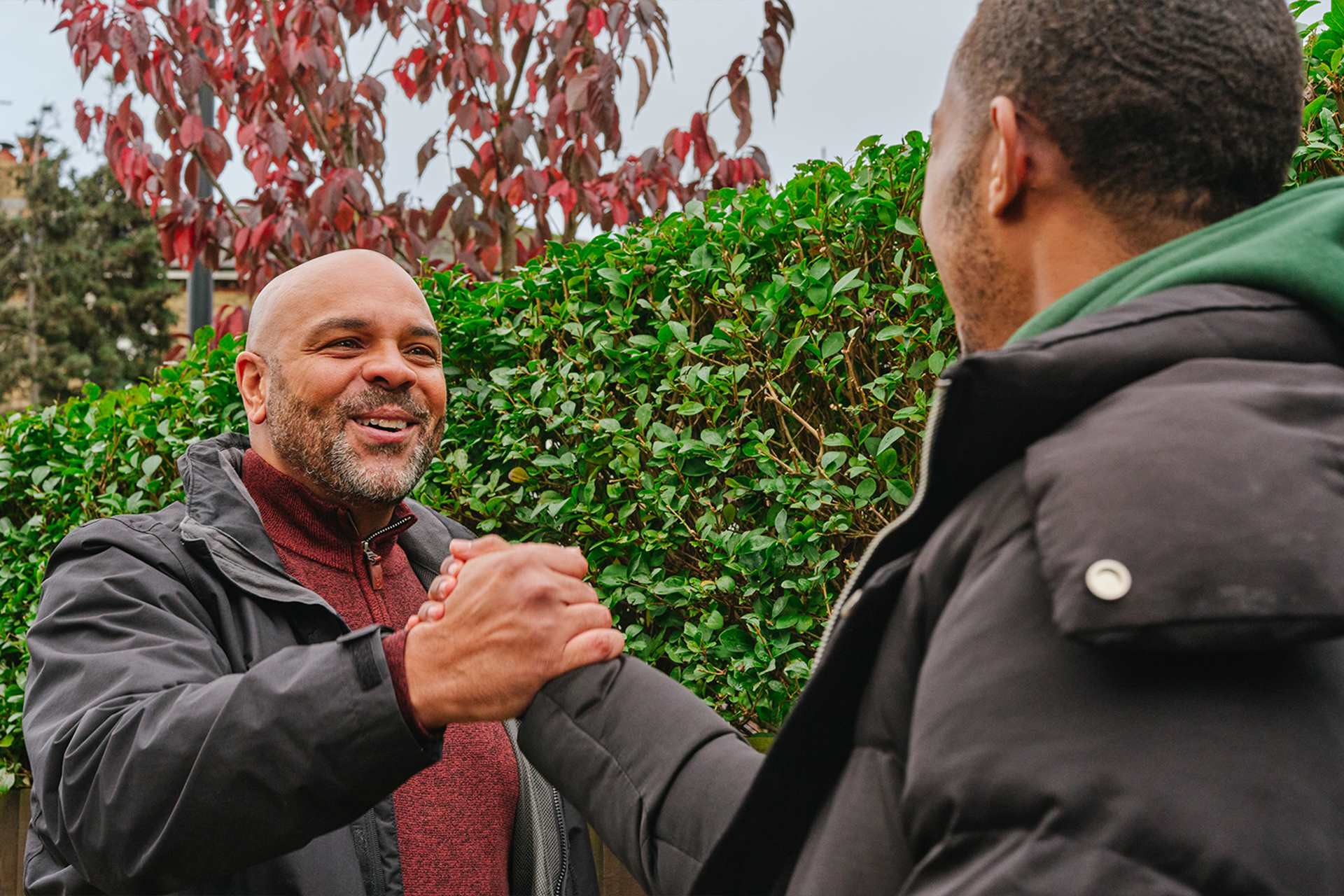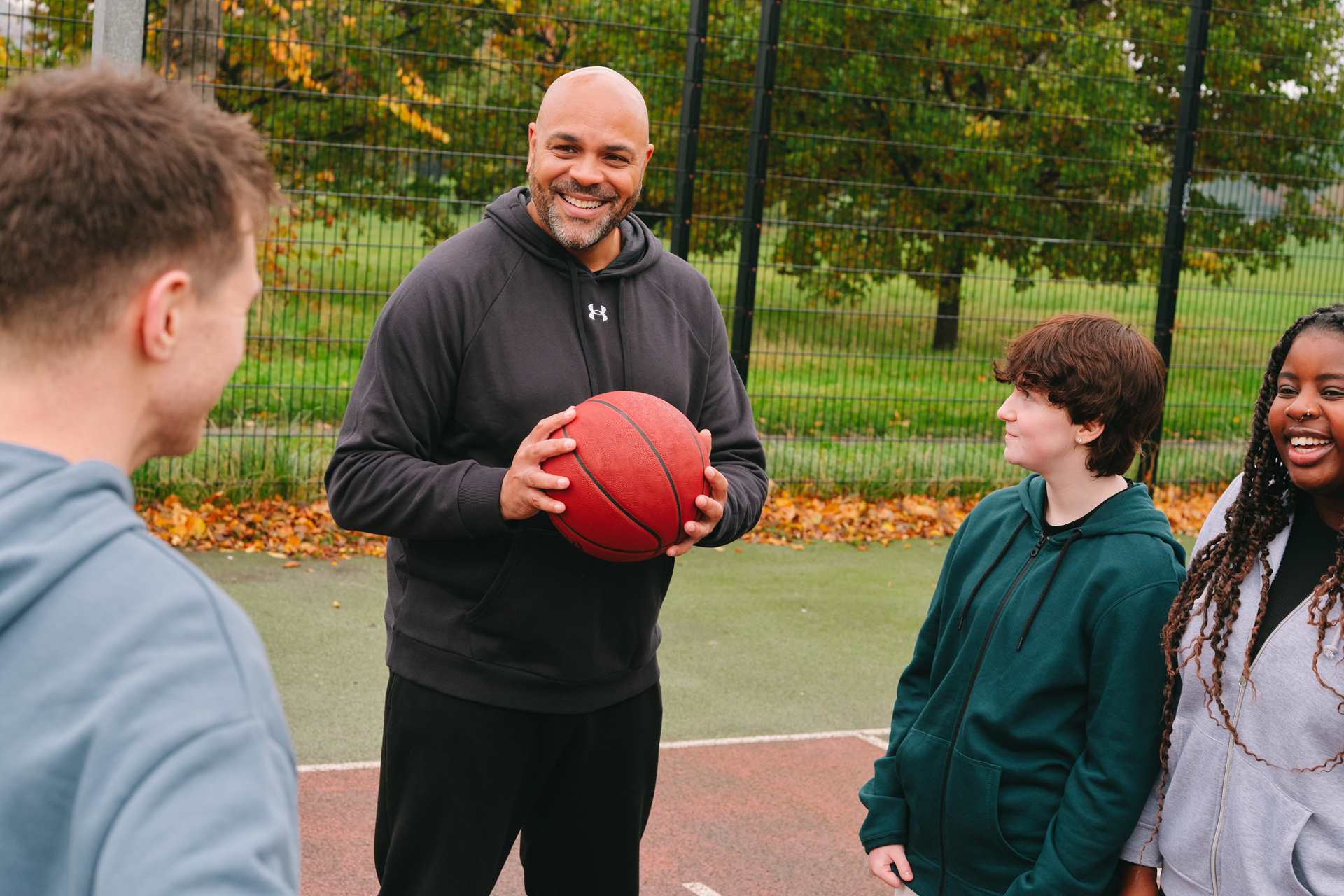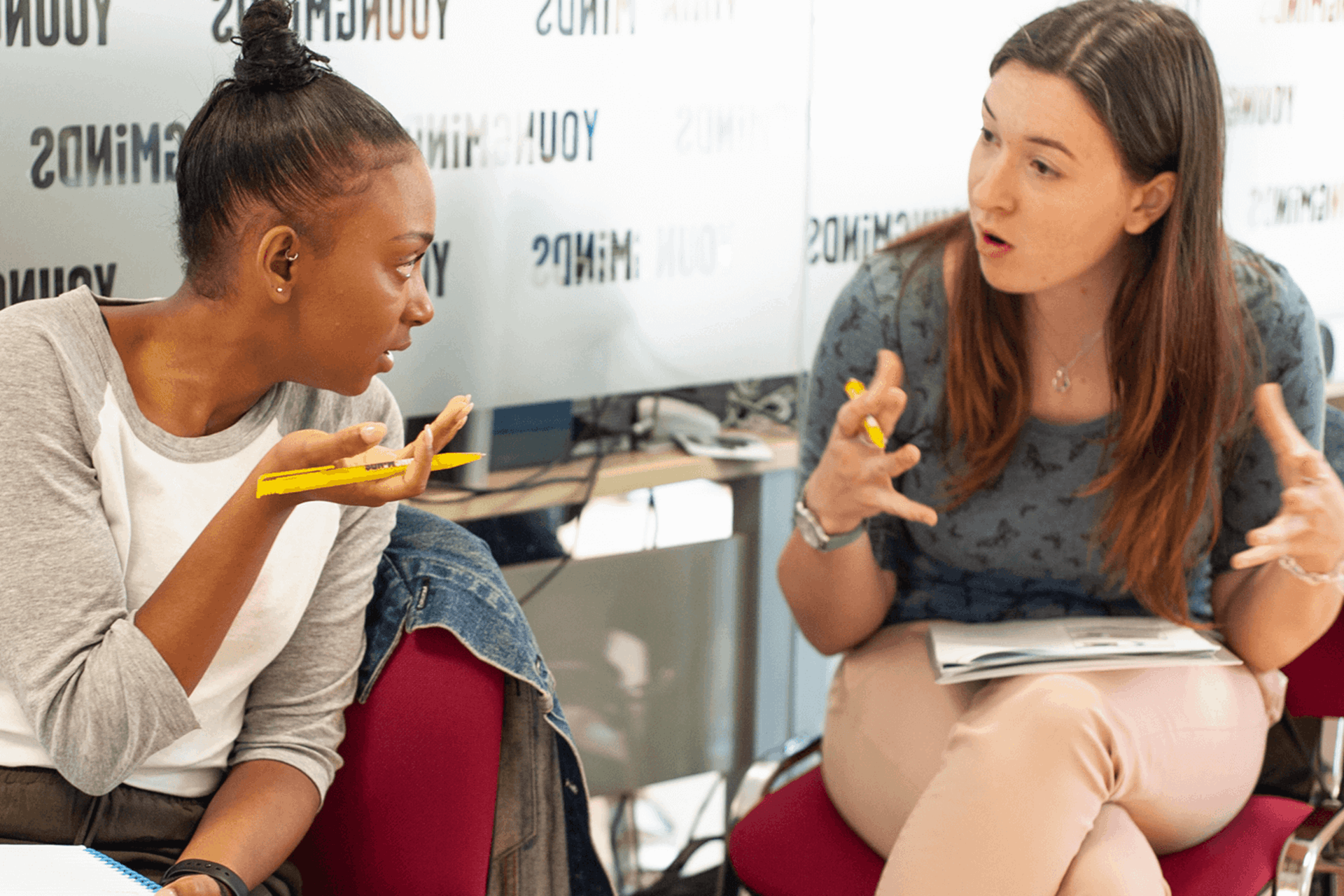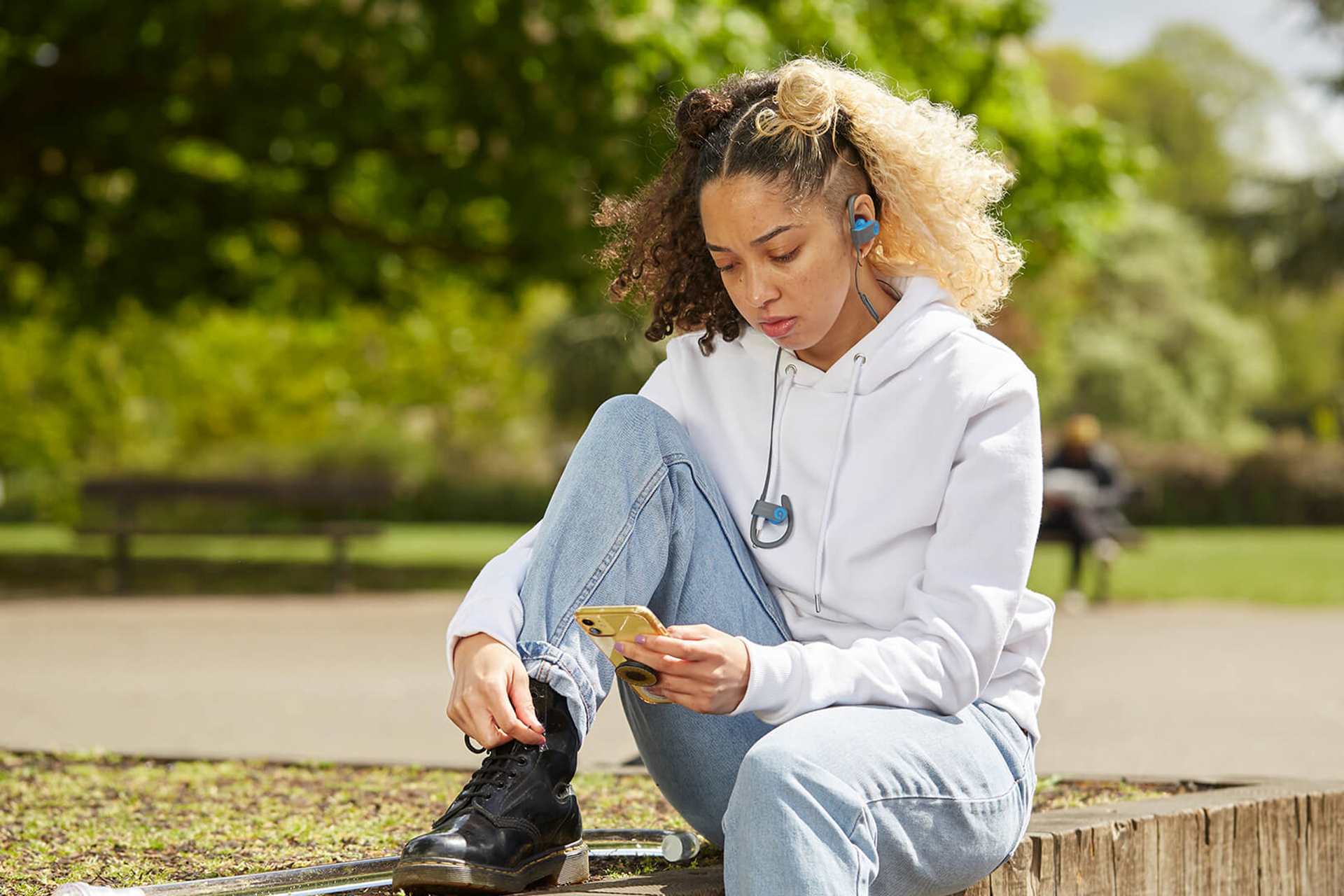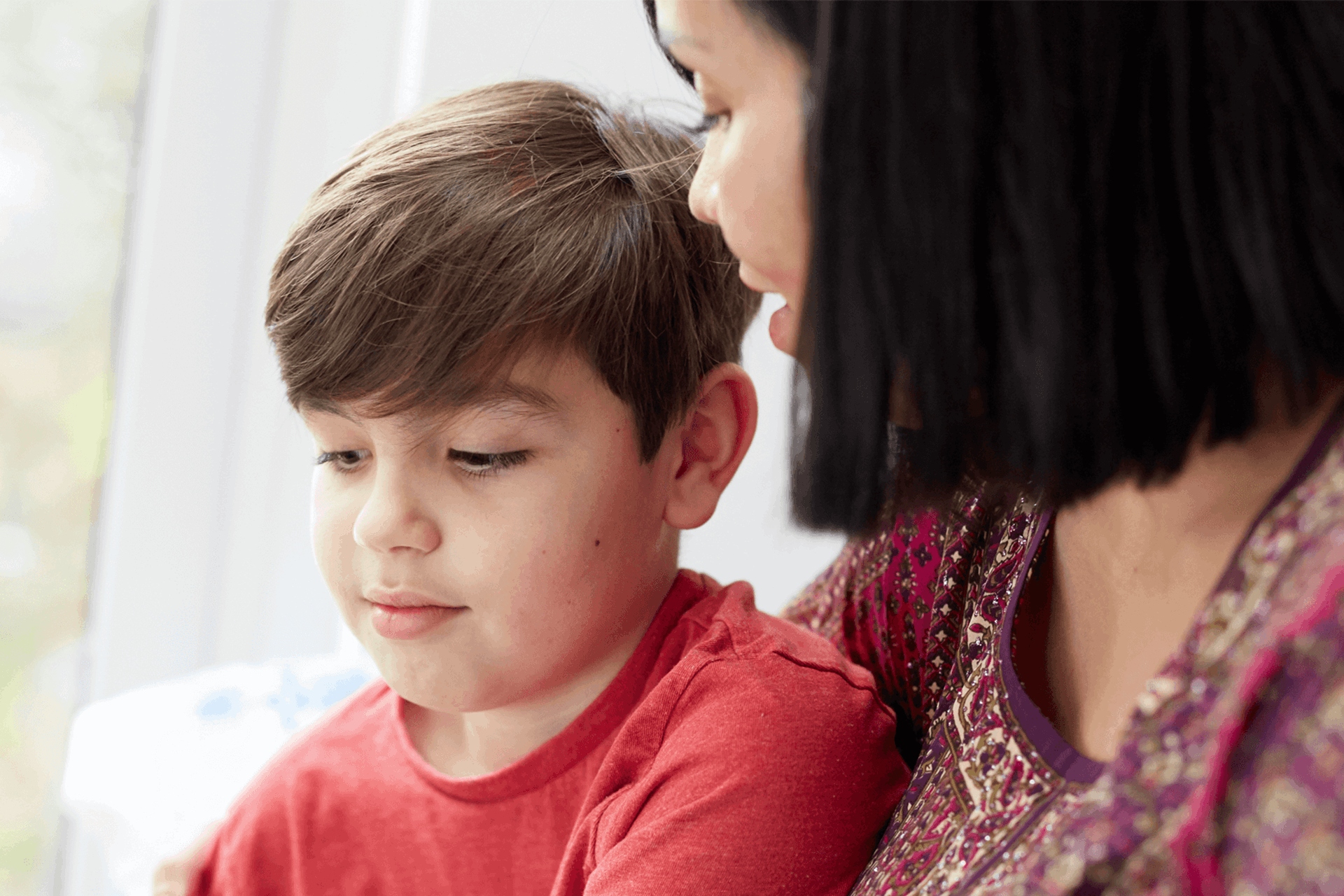YoungMinds has been working with King's College London (KCL) since 2018 on their Social Media, Smartphone Use and Self-Harm In Young People Study (3S-YP). The insights in this series of spotlight stories come from a specific piece of work led by our Youth Advisors to contribute towards our understanding of social media and mental health.
We would like to extend our appreciation and thanks to YoungMinds Activists who joined focus groups and the interview to contribute and consult with us on the topic. Without them, creating the blog would not have been possible.
Introduction
Researchers at Kings College London have been working with YoungMinds to support their study about young people’s use of smartphones and social media and their experiences of self-harm. This study involved collecting data from young people who had recently accessed secondary mental health services in South London. Through the YoungMinds Youth Activist and Advisor programmes young people have helped to design the study, interpret the findings and think about how they could be used to make a difference for other young people.
To help understand what young people would find useful to support them, we did some research of our own with YoungMinds Youth Activists to gather their opinions on the relationship between social media use and their mental health.
We’ve turned these findings into two blogs to share our learning with other trusted adults who are supporting young people.
In this first part we explore the push and pull factors young people experience when using social media. The second part focuses on what young people want adults to know about social media use and their mental health.
The push and the pull
From our research, it was clear that young people have a “love/hate relationship with social media” and they felt a mix of ‘push’ and ‘pull’ factors.
Things that young people said made them want to stop or take a break from social media included:
- political perception
- unrealistic expectations
- long term anxiety
Social media, while good short-term support for some young people, is not always beneficial for more long-term support. Social media can generate algorithmic recommendations that can mean if a young person is in a negative cycle, social media can make things worse by recommending content that is not always positive or supportive of their mental health.
The things that make young people want to use social media include:
- entertainment
- contact
Social media allows young people to keep in touch with friends and family, especially those who may be long distances away.
Sometimes I use [social media] for community which is a good thing.
With this push/pull, young people are left facing a dilemma.
Young people told us that those who may face additional barriers to finding mental health support may look to social media to find like-minded individuals who understand them and can share similar experiences. Social media can offer young people an outlet for support as it is less demanding compared to in-person contact. As a result, these pull factors draw young people back to social media and make them want to continue using it so they can benefit from the support it offers them.
Push and pull factors were unique to each person we spoke to, which is important to remember when supporting young people.
Young people’s wellbeing in relation to social media
Young people told us they turned to specific platforms and charities for advice and guidance, searching for “links to pages and conversations” and “access[ing] an online coach from social media”. Activists recognised that these online spaces can be particularly helpful and important for certain communities such as neurodivergent and disabled young people.
Online spaces
Online spaces can reduce isolation, but there are limitations to virtual communities and online support services.
One Activist told us:
[Social media] could decrease loneliness, but not long-term anxiety and it didn’t change how I was feeling, it helped to a point and not in the long term.
While social media was understood to be a good starter for mental health support, many Activists showed a preference for offline support (“mindfulness is more enriching”). This suggests that while social media can be a useful resource for information and mental health support, it is not a replacement for mental health and wellbeing support offline.
Action young people already take to protect their mental health
Young people shared ways in which they protect their mental health on digital platforms if they come across harmful content. Some examples they gave were reporting posts; blocking accounts posting triggering content; and keeping their digital accounts private.
Many of the Activists found it difficult to step away from social media at times and this had a negative effect on their mental health. Activists who were also supporting friends or peers online, found this even harder “I worry about my friends… the guilt of stepping away from someone’s experiences, I wouldn’t want someone to feel less validated.”
While Activists recognised that in order to look after their own wellbeing, they would at times need to step back and avoid engaging with some social media content, this was not an easy decision, and they felt a sense of responsibility to remain on socials to support others.
Conclusion
From the conversations we’ve had, we can see the mix of push and pull factors facing young people using social media. These factors are individual and depend on the young person's own experience and what they need from social media. It is widely recognised that leaving social media completely is very difficult for young people, which is made harder because of the benefits it can have, such as connecting with others and providing support for their mental health.
Resources for supporting the young people you work with
Spread the word
